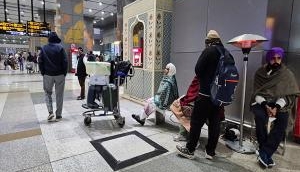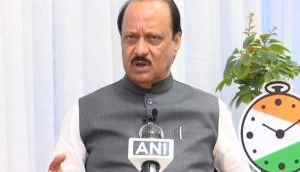
Delhi Metro commuters will now be able to avail the facility of a new type of smart card which comes with an auto top-up feature enabling them to recharge it automatically at Automatic Fare Collection (AFC) gates of the metro stations.
This new smart card is available for customers through the App 'Autope' which is specially developed for the purpose.
"The smart cards issued by the 'Autope' will offer auto top-up functionality whenever the value of smart card goes below Rs 100 and will automatically recharge the card with Rs 200 at the AFC entry gate itself. 'Autope' will auto-debit the topped up value from customer's linked card/bank account the next working day," according to an official statement issued by DMRC on Wednesday.
To avail the services of 'Autope' smart card, the users will be required to register by downloading the 'Autope' app or register at Autope's mobile site autope.in and link their bank/credit card/UPI account to the card as a one-time exercise. A nominal fee (maximum of 1%) will be charged as a convenience fee from the customer for each transaction.
In addition, those commuters who already have existing Delhi Metro smart cards can also get the auto top-up feature enabled in their cards by registering through the Autope App.
"Such existing cardholders need to visit the Customer Care centre of any of the metro stations after three days of registration to get their smart cards activated for this facility as a one-time exercise," the statement said.
Dr Mangu Singh, Managing Director, DMRC said, "This initiative is in line with the DMRC's commitment towards supporting the digital drive to promote cashless transactions among the Delhi Metro commuters. This new feature/card empowers a commuter to get his/her smart card auto topped up at AFC Gates across the network which will help him/her to have seamless travel without worrying about top-up from time to time."
This feature comes handy at these times wherein, commuters are going to follow a new travel protocol (whenever metro services resume) which calls for social distancing and contactless services due to the ongoing COVID-19 pandemic. However, irrespective of the new card/feature, the existing smart cards owned by the commuters will continue to remain valid in the same manner as they used to be so far.
Founders of Autope, Anurag Bajpai and Pankaj Gambhir, said, "It is a matter of great pride that our legacy of experience in optimising processes for payments has been recognised by Delhi Metro in the form of this collaboration which creates a win-win situation for both the consumers as well as Delhi Metro itself. The current COVID-19 situation has highlighted the importance of contactless services and we remain committed to offer full scale and smart and hassle-free platform supported by innovative and scalable technology solutions to all our clients."
Apart from auto top-up facility, the benefits extended by 'Autope' also include home delivery of new cards, besides their customisation facility and 5 per cent additional discount on each top-up.
"The new measure will eliminate the need for queuing up at the metro stations to recharge the smart card. Generally, even in case of online recharges, the card needs to be presented to Add Value Machines (AVMs) for the store value to get validated; 'Autope' eliminates the AVM layer as well," the statement said.'Autope' smart cards are supported by an auto debit facility for recurring payments launched recently by National Payment Corporation of India (NPCI) and it allows the customers to set up UPI mandate for their metro payments.
'Autope' is developed by Anduril Technologies Pvt. Ltd. in association with DMRC and NPCI.
Delhi Metro services have been suspended since March following the nationwide lockdown due to COVID-19 pandemic.
(ANI)
Also Read: Delhi Rains: Vehicles damaged in Saket after sidewall collapses







![BJP's Kapil Mishra recreates Shankar Mahadevan’s ‘Breathless’ song to highlight Delhi pollution [WATCH] BJP's Kapil Mishra recreates Shankar Mahadevan’s ‘Breathless’ song to highlight Delhi pollution [WATCH]](https://images.catchnews.com/upload/2022/11/03/kapil-mishra_240884_300x172.png)

![Anupam Kher shares pictures of his toned body on 67th birthday [MUST SEE] Anupam Kher shares pictures of his toned body on 67th birthday [MUST SEE]](https://images.catchnews.com/upload/2022/03/07/Anupam_kher_231145_300x172.jpg)






